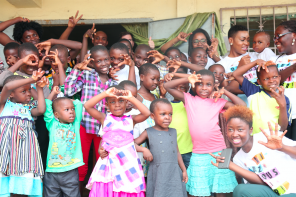For anyone who has flown Ethiopian Airlines, the first thing that strikes you is the beautiful bevy of flight attendants. Whether male or female, one cannot deny their striking glamour. However, they recently proved that being pretty is not the only thing they are good at.
A week ago, on November 18th 2015, Ethiopian Airlines celebrated women by dispatching its first-ever flight operated by an all-female crew. From the flight deck, crew members to senior executives on-board, all women. The on-ground flight preparations were also conducted by females.
The flight departed for Bangkok, Thailand on Wednesday night, and upon arrival in Bangkok, the customs and immigration officers were female. This was done to celebrate women and promote African women empowerment.
According to Ethiopian Airlines, about a third of its employees are women. But this number shrinks even more when it comes to the pilots and technicians. This maiden flight managed by an all-women crew is an attempt to increase women’s presence in the aviation industry. But it stretches further than that. It is a wordless declaration to young African girls that nothing is unattainable through consistency and hard work.
Africa is seriously lagging behind in its women empowerment. Apart from Rwanda which has the largest percentage of women in government in the world at 64%, other countries leave much to be desired.
This bold step by Ethiopian Airlines is in accordance with the African Union’s declaration that 2015 is the Year of Women’s Empowerment and Development towards Africa’s Agenda 2063. This is in order to combat a slew of problems the average African woman faces. This includes marginalisation within the corridors of power and when applying for jobs, social exclusion from education to their inability to own land or inherit property. These issues and more rank highly among the scourges that have held back the progress of most African women.
In 2011, UNICEF estimated that 31 million girls of primary school age and 34 million girls of lower secondary school age were not enrolled in school. In addition, one in four women globally are still illiterate, with most of them living in sub-Saharan Africa. It is reported that in 47 out of 54 African countries, girls have less than a 50% chance of completing primary school.
This is surprising as women make up more than 50% of the continent’s population. The move by Ethiopian Airlines should spur an awakening in Africa. African women have long been regarded as the backbone of African societies. Therefore, uplifting one girl would have a ripple effect across her community. As acclaimed author Chimamanda Ngozi Adichie said, “We should all be feminists”. It is not a question of he against she, but he for she and she for he.





